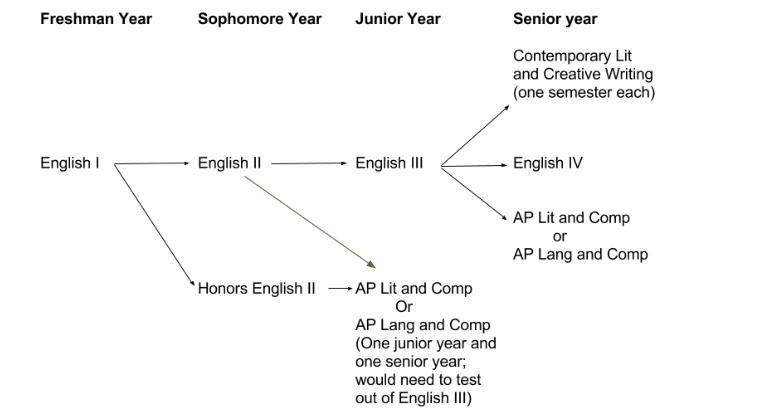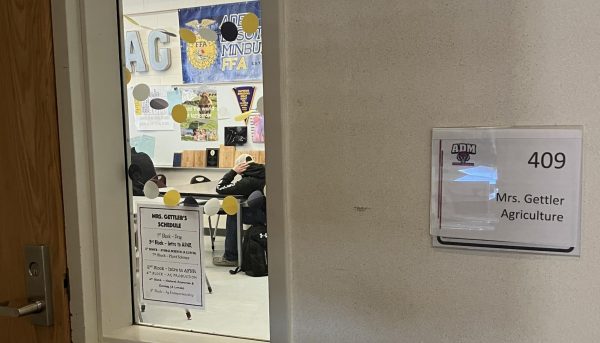Changes to the English Curriculum: When, Why, and Will They Affect YOU?
Photo by Rachel Suarez
While today Speech students are giving their final presentations for the semester, just three days ago, on December 11, the English Department proposed to the school board possible changes to the way we approach English standards. Incidentally, our current setup leaves juniors and seniors vulnerable, as they are not guaranteed literature standards. For instance, a student could take Speech, Composition, Creative Writing, and News Journalism their last two years of high school and graduate with the correct amount of credits–but these classes are all based on text that the student writes, none of them instruct on the analysis or exposition of literature written outside the classroom; it’s the difference between reading and writing, and it’s all too easy to miss out on the first standard.
Right now, freshmen take English I, sophomores take either English II or Honors English II, Speech and Composition are required as semester-long classes junior year, and senior year is up in the air–as long as it’s an English credit, it’s good for graduation. The English department has decided this is not enough; students are ill-prepared for higher education with the current structure.
“We’re trying to offer all students a guaranteed and viable curriculum…we’ve really narrowed down what we all agree as a team are priorities that we want kids to experience,” said Molly Longman, who teaches English II, Honors English II and Applied Communications.
With the changes the English Department is planning to implement, the sequence of classes would be as follows: English I, English II or Honors English II, English III (unless students want to test out and take either AP Language and Composition or AP Literature and Composition), English IV, Creative Writing and Contemporary Lit, or whichever AP class wasn’t taken junior year. That sounds pretty confusing, so here’s the tree chart that the English Department put together for their presentation for the school board meeting:

Another problem the English Department has encountered is the prevalence of speech-related activities in English I and English II–both of which occur before any formal instruction in speech. To better prepare freshmen and sophomores for these activities, both the English I and English II curriculums have been revised to integrate Speech standards in all four years of English instruction.
While it may seem like a lot to take in, these changes are not going to hit ADM like a freight train. Instead, they are going to be gradually introduced. During the 2018-2019 school year, the English Department will be implementing English III, but English IV will not become a reality until after next year.
When asked if the English Department had started working on the curriculum for English IV, Natalie Jennison, teacher of Composition and AP Literature and Composition, said, “We’ve briefly talked about it; our main priority right now is focusing on English III. It [English IV] is going to have reading standards and literature standards, writing, speaking, and listening standards–but just at a senior level in this case.”
In short, the class of 2020 is sure to have a more integrated, more complete English curriculum that covers all its bases.







